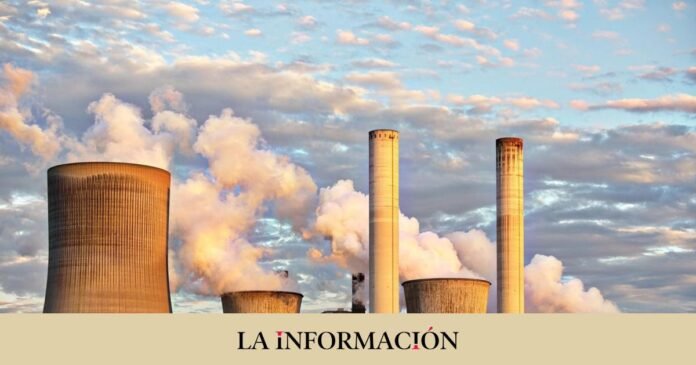The ‘Enresa tax’, with which the owners of nuclear power plants pay for the management of radioactive waste that is in the hands of the public company, raises the latest dust in the energy sector. The companies are opposed en bloc to the increase proposed by the Government, alleging that they already bear a high tax burden and that if it materializes it would put the viability of the reactors at risk. PwC, in its report The role of nuclear energy in the framework of the energy transition, presents a series of alternatives to compensate in other ways for the increase proposed by the Executive.
Since its creation in 2005, the rate with which nuclear power plants finance the activities of the General Radioactive Waste Plan (PGRR) has been ‘in crescendo’ as Enresa has been increasing the costs of the plan. The latest modification has resulted in a proposal that would imply an increase of 40%, going from 7.98 euros per megawatt hour (MWh) to 11.14 euros/MWh starting in July.
The update of future costs responds mainly to the need to maintain seven decentralized temporary storage (ATD), one at each nuclear power plant site, which will replace the failed centralized temporary storage (ATC). According to the consultancy, this represents an “extra cost” of 2,000 million euros that is not attributable to the owners of the nuclear power plants, but derived from a political decision.
Nuclear companies bear a tax burden of 40% of their turnover.
Forum of the Spanish Nuclear Industry, in which Iberdrola, Endesa, Naturgy and EDP are represented – in addition to other organizations – has presented contentious administrative appeals against the royal decrees by which the 7th PGRR is approved and the ATC in Villar is abandoned of Cañas (Cuenca). It has also presented allegations to the future Royal Decree that modifies the so-called ‘Enresa rate’. PwC explains that the total taxes and fees for the plants are 25 euros/MWh, which is equivalent to between 35% and 40% of their annual billing. With the increase in the rate, it would amount to up to 50% when electricity prices are around 50 euros/MWh (OMIP 2024-2034 average).
“The implementation of the new standard would raise the tax burden to 28 euros/MWh, that is, it would mean 1,566 million euros of annual taxes on nuclear power plants, a figure that poses great challenges for the profitability and competitiveness of the sector and would make this energy more expensive. to final consumers,” he argues in the document. In this sense, he raises the following question: Is there then an alternative solution to the 40% increase in the Enresa Rate? In his opinion, yes.
The firm maintains that Law 15/2012, of December 27, on fiscal measures for energy sustainability was created, among other things, to cover possible unforeseen increases in the costs of the PGRR and that, therefore, a possible solution passes so that Enresa can cover the deviations planned in the seventh plan with the collection of said law and thus the tax burden on nuclear technology is not increased.
Specifically, through this law, the plants pay a fee for the production of nuclear fuel and radioactive waste that amounts to about 5 euros/MWh and for which more than 3,000 million euros have been collected by 2023, an amount that would have been enough to cover the extra cost of 2,000 million euros posed by the latest PGRR if it had been saved in a fund for Enresa deviations. “If a part of the future collection of the tax from Law 15/2012 is allocated to Enresa, it would not be necessary to increase the rate on the power plants as proposed with the proposed Royal Decree. Likewise, if the excess collection of the tax from this same law would be kept in a fund, possible imbalances that Enresa may have in the future would be covered,” the report highlights.
On the other hand, PwC also points out that it would be advisable to review the appropriateness of establishing taxes on Enresa and which it then transfers to nuclear power plants. It is common practice in Spain that structures owned by the State, autonomous communities, local corporations, as well as autonomous organizations and other public sector entities are exempt from taxes. “Simply exempting Enresa from the tax on the centralized storage of radioactive waste and spent fuel established in Law 15/2012, would reduce the costs of the 7th PGRR by 1,277 million euros (which would be equivalent to reducing the rate by approximately €2/MWh), he adds.
Whether or not to extend the useful life of nuclear power plants
The Ministry for the Ecological Transition has stated on several occasions and publicly that it is not within its plans to modify the closure schedule and the companies that own the plants have not formally asked it to do so either. Sources from the ministry headed by Teresa Ribera assure that there is no evidence in the ministry that the owners of the reactors have requested the modification of the closure protocol signed in March 2019 between them and Enresa.
In this way, the clock is ticking and the nuclear blackout remains scheduled as agreed five years ago. In this way, and barring a last-minute surprise, the seven reactors will stop operating between 2027 and 2035. the ‘confrontation’ with the Executive.
How many plants are there in Spain?
The CEO of Endesa, José Bogas, said this Wednesday that “intellectually” it is a favor that they last longer, but that he also accepts the political decision. For his part, the president of Naturgy, Francisco Reynés, said he agrees with what has already been agreed, although it is true that the gas company’s nuclear power is practically residual and is focused on its commitment to renewables and ‘green’ gases. . .
Spain currently has five active nuclear power plants with seven reactors in total. The Almaraz nuclear power plant will begin in 2031, three years after the cessation of its productive activity.

